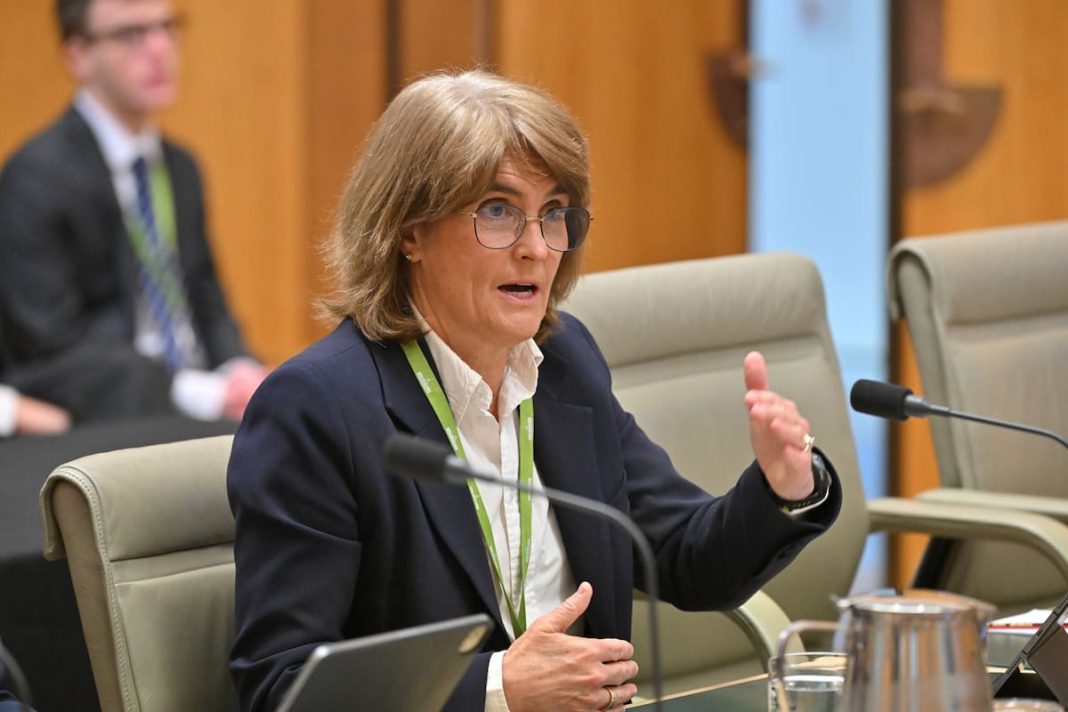The Australian economy is “very weak” yet Reserve Bank governor Michele Bullock says the domestic situation does not fit the characterisation of stagflation.
Despite expectations of a sluggish March quarter growth outcome on Wednesday, Ms Bullock said the central bank was “not ruling anything in or out” on interest rates and would continue to respond to new data as it came in.
In the 1970s, the Australian economy and others around the world experienced a period known as stagflation where growth was stagnant and inflation was above-average.
Speaking at a parliamentary hearing ahead of Wednesday’s release of national accounts data, Ms Bullock said she expected another quarter of per-capita GDP in decline in the first three months of the calendar year.
“We are in a position where the economy is very weak … we’ve got people cutting back on discretionary expenditure,” she said.
“But we’ve still got the labour market growing, and that’s a very important point to remember.”
When asked by opposition finance spokesperson Jane Hume if the economy was experiencing what’s known as “stagflation”, the senior central banker said the labour market was too strong to warrant the label.
“Stagflation typically you’d think of as a situation where you’ve got very high inflation – inflation is high, but it’s come down from 8 per cent, 7.8 per cent,” she told the hearing.
“But we’ve got growth in employment, and … we’ve got weak growth, but we judge that demand is still a bit above the ability of, the capacity of the economy to supply. So that, for me, doesn’t describe stagflation.”
The governor also said Australia was still on the narrow path to a “soft landing”, which involves the economy slowing enough to gradually beat inflation back to target while keeping the gains in the labour market.
On the trajectory for interest rates, Ms Bullock reiterated the central bank was “not ruling anything in or out” and would base its next decisions on incoming data.
“If it turns out, for example, that inflation starts to go up again, or it’s much stickier than we think and we’re not getting it down, then we won’t hesitate to move rates again,” she said.
“In contrast, if it turns out that the economy is much weaker than expected, and that puts more downward pressure on inflation, then we’ll be looking to ease.”
By Poppy Johnston in Canberra



